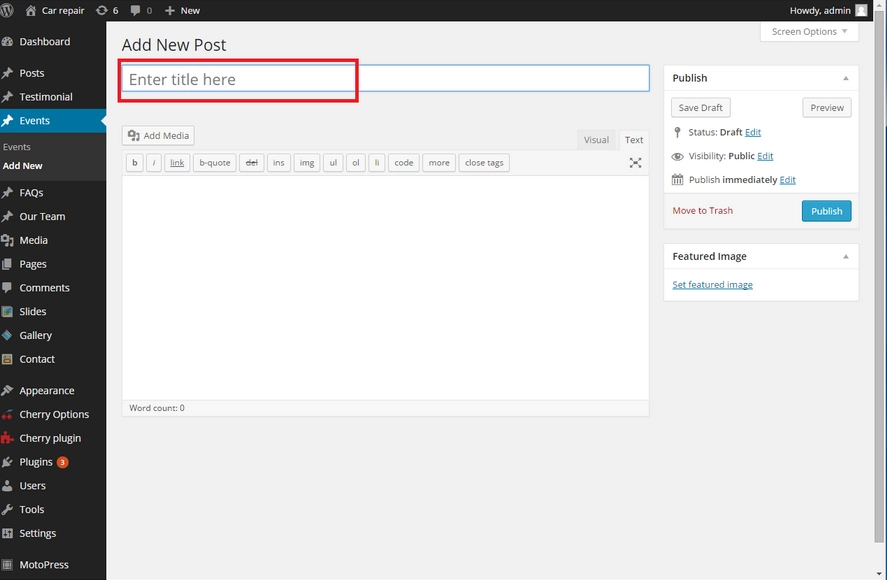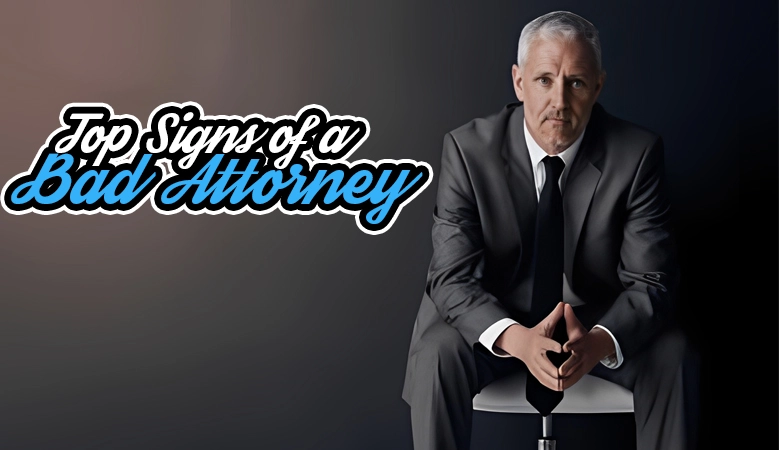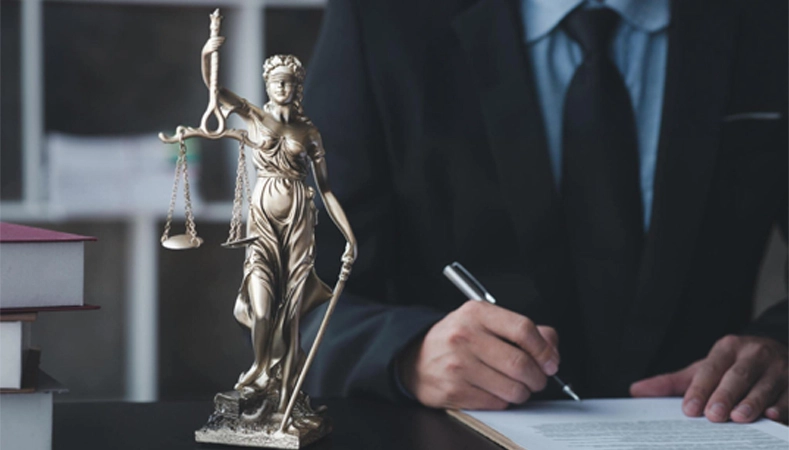Table of Contents
Navigating the legal landscape can be challenging, and trusting your attorney is paramount for a successful outcome. Recognizing the subtle signs that your attorney might be hiding information is crucial to maintaining transparency in your legal proceedings.
What are the subtle signs that my attorney might hide information from me?
In legal representation, transparency is the bedrock of a trusting attorney-client relationship. If you notice evasive answers, a lack of communication, or crucial case details being withheld, these could be subtle signs that your attorney may be concealing information. To protect your interests, pay close attention to the clarity and openness of your attorney’s communication.
When working with attorneys near me, the clarity of the information provided is essential. A skilled attorney will ensure that you are well informed about the progress of your case, maintaining open lines of communication and addressing any concerns promptly.
Transparency about case developments fosters a sense of trust and confidence between you and your attorney, enhancing the overall effectiveness of your legal representation.
Are there specific behaviors or actions that could indicate my attorney is concealing important details?
Beyond verbal communication, the actions and behaviors of your attorney can reveal a lot about their honesty and commitment to your case. If you observe a pattern of missed deadlines, unexplained delays, or a general lack of proactiveness in your legal proceedings, these could be indicators that your attorney might be concealing important details. Proactively address any concerns with your attorney to ensure clarity and prevent potential issues.
Securing legal representation is a significant decision, and it’s vital to be vigilant about potential red flags that may suggest your lawyer isn’t prioritizing your best interests. Poor communication missed deadlines, and a lack of transparency are common red flags that should prompt you to reassess your legal representation. Your best attorney near me should actively work to safeguard your rights and interests, and any deviation from this commitment warrants careful consideration and, if necessary, action to protect your case.
What steps should I take if I suspect my attorney is keeping information from me?
If suspicion arises regarding your attorney withholding information, taking proactive steps is essential for safeguarding your legal interests. Engage candidly with your attorney, expressing your concerns and seeking clarification on any issues causing doubt. If satisfactory answers are not provided, consider seeking a second legal opinion to gain an alternative perspective on your case. In more severe cases, filing a complaint with the appropriate legal authorities may be necessary to address potential misconduct and protect your rights.
In any attorney-client relationship, trust is paramount. If you are concerned about your attorney’s avoidance of direct questions, addressing this issue head-on is essential. Open and honest communication is the cornerstone of a successful partnership, and expressing your concerns directly can help set the tone for a more transparent relationship. Suppose your attorney continues to evade questions or fails to provide satisfactory answers. In that case, it may be a sign to reassess your legal representation to ensure your case receives the attention it deserves.
Jointhegrave.com is your ally in uncovering the truth about your legal representation. If you are experiencing doubts or suspect your top attorney near me is hiding crucial information, visit Jointhegrave.com for resources and guidance on evaluating and addressing potential issues with legal professionals.
What role does communication play in uncovering potential secrecy or dishonesty from my lawyer?
Communication is the backbone of any successful attorney-client relationship. Regular, clear, and open communication is essential for building trust and ensuring that both parties are on the same page. If your lawyer consistently avoids direct answers, provides vague responses, or fails to keep you updated on the progress of your case, it could indicate potential secrecy or dishonesty. Establishing a strong line of communication from the outset is key to preventing misunderstandings and fostering a transparent legal partnership.
The importance of communication in the attorney-client dynamic cannot be overstated. When information is concealed or not adequately shared, it can lead to misunderstandings, delays, and even adverse outcomes in your case. Attorneys must keep clients informed, and any deviation from this responsibility should be a cause for concern. By prioritizing open communication, you empower yourself to make informed decisions and maintain confidence in your legal representation.
Are there legal consequences for attorneys who hide information from their clients?
Attorneys are bound by legal and ethical obligations to provide full disclosure and transparency to their clients. Failure to meet these standards can result in severe consequences for the legal professional. Legal repercussions may include disciplinary actions from professional licensing boards, ethical misconduct investigations, and, in extreme cases, legal malpractice claims. Clients have the right to accurate and complete information about their cases, and attorneys near me who violate these principles may face serious consequences that can impact their careers and professional standing.
The legal system places a high value on transparency, and attorneys near me are held to rigorous standards to ensure their clients’ fair and just representation. Suppose you discover that your attorney has been hiding information from you. In that case, it’s crucial to document the instances and, if necessary, consult with legal professionals or relevant authorities to explore potential courses of action.
How can I communicate openly with my attorney to avoid potential trust issues?
Establishing open communication with your attorney is a proactive step toward building a strong and trustworthy legal relationship. Begin by clearly expressing your expectations for communication and setting regular check-ins to discuss the progress of your case.
Create an environment where your attorney feels comfortable sharing information and where you can ask questions without hesitation. By fostering an atmosphere of transparency from the start, you can mitigate potential trust issues and ensure a more positive and effective legal representation.
Open lines of communication are the foundation of a successful attorney-client relationship.
To avoid potential trust issues, it’s crucial to establish clear expectations regarding communication early on. Clearly outline how often you expect updates on your case, the preferred method of communication, and any specific concerns you may have. Encourage your attorney to be forthcoming with information and express your willingness to engage in open dialogue. You can build trust and confidence in your legal representation by setting the groundwork for transparent communication.
What impact can a lawyer’s lack of transparency have on the outcome of my case?
A lawyer’s lack of transparency can have far-reaching consequences on the outcome of your case. When crucial information is hidden or not adequately communicated, it may lead to misunderstandings, missed opportunities, and a less favorable resolution.
Judges and opposing parties may view a lack of transparency unfavorably, potentially harming your legal standing. To secure the best possible outcome, it’s crucial to address any transparency issues promptly, either through improved communication with your existing attorney or by seeking alternative legal representation.
In legal proceedings, transparency is not just a nicety but a necessity. A lawyer’s failure to be transparent about case details, strategies, or potential challenges can significantly impact the overall outcome. Judges and juries often value honesty and openness, and a lack of transparency may erode your credibility.
To ensure the best possible result, work closely with an attorney near me who prioritizes clear communication and transparency throughout your case.
Are there resources or organizations that can help me verify the credibility of my attorney?
Verifying the credibility of your attorney is a prudent step in ensuring you have reliable legal representation. Several resources and organizations exist to help you assess your attorney’s credentials and ethical standing. Start by checking with your state’s bar association, which maintains records of attorneys and their disciplinary history. Online review platforms and legal directories can also provide insights into the experiences of other clients. Additionally, seeking recommendations from trusted friends, family, or colleagues can offer valuable perspectives on an attorney’s credibility and reputation.
Ensuring the credibility of your best attorney near me is essential for a positive legal experience. Begin by consulting your state’s bar association, where you can verify an attorney’s license, disciplinary history, and any ethical issues. Online review platforms and legal directories can provide additional information based on the experiences of other clients. Don’t hesitate to ask your attorney for references or case examples demonstrating their competence and reliability. You can make informed decisions about your legal representation by thoroughly vetting your attorney’s credibility.
Is it common for attorneys to keep certain details confidential, or should I be worried if they do?
Attorneys often handle sensitive information that must be kept confidential to protect the client’s best interests. However, there is a fine line between confidentiality and transparency. Your attorney should communicate openly about the information they must keep confidential and provide a clear understanding of what can be shared with you. If your attorney is excessively secretive or avoids discussing essential details, it may be a cause for concern. Striking the right balance between confidentiality and transparency is crucial for maintaining trust in the attorney-client relationship.
Confidentiality is a cornerstone of the attorney-client privilege, allowing clients to share sensitive information with their legal representatives. While it is common for attorneys near me to keep certain details confidential to protect their clients, it is equally important for them to maintain transparency about the overall progress and strategy of the case. If your attorney is excessively secretive or avoids discussing critical details without valid reasons, it may raise concerns about the openness of your legal representation. Having a candid conversation with your attorney is essential to establish clear boundaries and expectations regarding confidentiality and transparency.
What legal obligations does my attorney have to disclose information to me?
Attorneys have legal and ethical obligations to disclose relevant information to their clients. This includes providing updates on the case’s progress, sharing key developments, and being transparent about potential risks or challenges. Failure to meet these obligations can damage the attorney-client relationship and lead to legal consequences for the attorney. Clients have the right to be informed about the status of their cases, and attorneys must fulfill their duty of disclosure to uphold the principles of fair and effective legal representation.
Your top attorney near me is legally obligated to keep you informed about your case. This obligation includes providing updates on case developments, explaining legal strategies, and disclosing any information that may impact the outcome of your case. Suppose your attorney fails to meet these obligations and withholds critical information. In that case, it hinders your ability to make informed decisions and may constitute a breach of your professional responsibilities. Clients should actively seek a transparent relationship with their attorneys to ensure their rights are protected throughout the legal process.
Are there warning signs in my attorney’s behavior that could indicate a lack of professionalism or integrity?
Professionalism and integrity are non-negotiable qualities for any attorney. If you observe warning signs in your attorney’s behavior, such as evasiveness, unresponsiveness, or a lack of accountability, these may indicate a lack of professionalism or integrity. Attorneys should conduct themselves with the utmost respect for ethical standards, and any deviation from these principles should be a cause for concern. Trust your instincts, and if you sense a breach in professional conduct, consider seeking alternative legal representation to safeguard your interests.
The behavior of your attorney near me is a significant indicator of their professionalism and integrity. If you notice evasive responses, a lack of accountability, or unprofessional conduct, it’s crucial to address these issues promptly. Attorneys are held to high ethical standards, and any deviation from these principles can compromise the effectiveness of your legal representation. Trust your instincts; if warning signs persist, it may be prudent to explore other options for legal counsel to ensure your case is handled with the professionalism and integrity it deserves.
In conclusion, ensuring transparency in your attorney-client relationship is essential for a positive legal experience. The signs of a bad attorney hiding crucial information can manifest in various ways, from subtle evasiveness to a blatant lack of communication. By recognizing these warning signs and taking proactive steps to address concerns, you can protect your interests and maintain confidence in your legal representation. Remember, open communication, verification of credibility, and a watchful eye for warning signs are your allies in navigating the complex world of legal proceedings.
Jointhegrave.com is committed to empowering individuals with information and resources to make informed decisions about their legal representation. Whether you seek guidance on evaluating your attorney’s credibility or need assistance addressing concerns, Jointhegrave.com is here to support you on your legal journey.














Leave a Reply